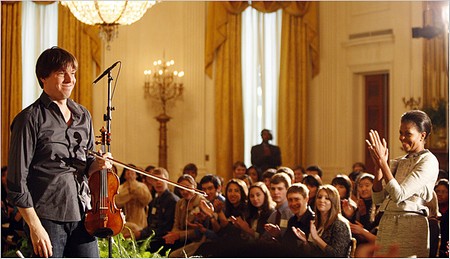Acting what is known as ‘the classical repertoire’ is the crown of acting in English. By this term we mean a whole body of plays which have passed the test of time. Over decades and centuries these plays have been successfully revived because of their humanity, depth of insight, humor, feeling and pungency of observation. The best of modern plays eventually join this body of work for the same reasons. Great plays by writers from other countries, translated into English, are also part of the classical repertoire: Moliere, Racine, Schiller, Ibsen, and Chekhov. I’ve dwelt on Shakespeare because he is the finest of a group of remarkable Elizabethan and Jacobean poetic dramatists, whose work is of a similar kind. Kyd, Jonson, Marlowe, Webster and Tourneur are the greatest of them, and the same approach and techniques need to be applied when acting them. There is also a body of Elizabethan bourgeois comedy, known as ‘City comedies’ which deals with the emergent mercantile middle and lower-middle classes. They are mainly in prose. After the Restoration, language changed and prose became the instrument, though there is an innately poetic quality in the language of Congreve, for example, which often has exquisite beauty and rhythm. From The Way of The World:

Mrs. Millamant One no more owes one’s beauty to a lover, than one’s wit to an echo. They can but reflect what we look and say; vain empty things if we are silent or unseen, and want a being.
Mirabel: Yet to those two vain empty things you owe the two greatest pleasures of your life.
Mrs. Millamant: how so?
Mirabel: To your lover you owe the pleasure of hearing yourself praised; and to an echo the pleasure of hearing yourselves talk.
Witwoud: But I know a lady that loves talking so incessantly, she won’t give an echo fair play; she has that everlasting rotation of tongue that an echo must wait till she dies, before it can catch her last words…
Witty and delightful conversation and enchanting vocal music.
Shakespeare, however, remains at the heart of the classical repertoire, for the sheer number of his plays, their variety and magnificence. Let’s try to summaries the core skills needed to play him:
1- A big breath capacity, smoothly and easily handled. Mastery of the ‘snatched’ breath, and the ability and energy to ‘attack’ again and again in the course of playing a big part. (Rosalind, Hamlet, King Lear, Cleopatra, for example). Control of ‘intensity’.
2- Great relaxation of the vocal equipment, so that there’s always a good quality of tone. The voice must be well placed to project; Shakespeare is usually played in big theatres, and the actor mustn’t shout.
3- A good range of notes, and the musical and rhythmic sense to use them subtly – even conversations are less chattily inflected than in modern telly sitcoms.
4- Agile, muscular articulation, tireless tongue and lips. Shakespeare and his contemporaries set the actor endless tongue twisters. Sit near the stage, and you’ll see even the finest actors spitting over the orchestra pit!
5- Bodily energy, fluidity and agility. The imagination to explore movement possibilities; you are the focus of visual interest, not your clothes or the scenery.
6- Bodily repose; being still for long periods without losing energy or presence. Fidgeting ruins Shakespeare’s language and thought.
7- Exploration of character and the ability to make his characters human, even fairies, sprites and ghosts.
8- An enjoyment of the beauty of the language. Enjoy also the modernity, truth and profundity of his ideas, and his humor, which is always around, even in the tragedies.